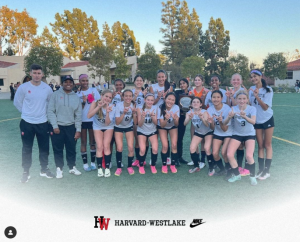Harry: Nowadays, there is an almost constant stream of creative products designed to entertain us. With the advent of the internet and social media, thousands of sites have emerged to review and rate sources of entertainment. As a result, anybody looking to read a review are barraged with opinions, good and bad. So to give these rating and review sites a taste of their own medicine, we rated them, based on how credible we think the opinions they form are.
Rotten Tomatoes: 8/10
(A site that rates movies and TV show by finding the percentage of positive reviews)
Harry:
First, Rotten Tomatoes: I think it’s great. It is a fantastic way to quickly find out whether a movie is worth your time. Also, something this site does well is that instead of just one person reviewing something, as, for example, Pitchfork does, it involves an “average” of sorts that includes the input of hundreds of well-educated movie reviewers, alongside thoughts from the public.
The problem with Rotten Tomatoes, though, is that we give it way too much credit. Despite their diverse reviewing, Rotten Tomatoes uses an extremely flawed system: It takes every review of a movie or T.V. show and decide if it is either a) a good review, or b) A bad review. If it’s not already obvious to you, this system has a big flaw. There is no gray area. What if the movie is totally average and all the reviewers agree? When there is no good or bad, it is up to a R.T. staff member to decide, and this could very well result in is a perfectly mediocre movie getting a better score than a fantastic film that was criticized by some.
Despite all that though, if you really feel the need to see a movie, Rotten Tomatoes is the best site to provide a credible recommendation. The problem, despite being obvious, is mostly hypothetical.
Yelp! : 7/10
(A site that rates restaurants, bars, and other locations using a star system that takes the average rating from normal people’s (non critic’s) reviews)
Will:
Yelp is a good website mainly because of the sheer amount of reviews that it compiles. This makes it so ratings are more balanced and therefore more accurate. Yelp is helpful because it has so many restaurants and places reviewed, so you can know about almost every place you can go to.
My issue with Yelp is that, unlike Rotten Tomatoes, reviews are made by people just like you and just like me. It has no expert food critic’s opinion, and it is harder to trust the general public with where you’re going to eat dinner. Also, one of Yelp’s biggest strengths may be its problem: sometimes, there are simply too many reviews, and in the time it takes to find a good place to eat, lunchtime might already be over. It would be nice if along with hundreds of reviews, there would be one or two expert opinions highlighted, and in addition a better algorithm could be applied, like Tinder, almost, to narrow down the options to the food that a specific user prefers.
Common Sense Media: 5.5/10
(A site that rates movies, tv shows, and video games, and gives them an age rating. The initial review is done by a professional, but it is open to public input)
Will:
Before my brother and I are allowed to watch a non-animated adult movie, my parents would first look the movie up on Common Sense Media. Common Sense rates movies, television and video games based on how old someone should be before they watch or play it.
The thing that makes Common Sense reasonable is that children and parents can also contribute their own opinion. However, this makes it so that the review with the lowest age rating becomes the standard. Many times has this feature has allowed me to watch movies that so-called critics said I shouldn’t.
Reviews are done by volunteer parents who have little experience rating movies and almost no credentials other than the fact that they have children. The real issue is that no two children are exactly alike and that only giving one age is it is too finite and impersonal. A better alternative would be for the actual parent to watch the movie and making a choice that is right for their child, even if that is not as convenient.
Pitchfork: 3/10
(A magazine that reviews music albums and ranks them on a scale of 1-10; the review and rating comes from one professional critic)
Harry:
As the number above suggests, Pitchfork is by far the most problematic of rating sites. It does possess its pros: The writers do a fantastic job in their work with detailed, eloquently written essays on albums. While Rotten Tomatoes gives a simple percentage and tidbits from reviews, Pitchfork provides a full, well-written breakdown of the music.
The people who write Pitchfork reviews are talented and knowledgeable on the subject of music, but the problem is that the review is the opinion of only one person. Music is probably the most subjective form of entertainment, so it seems criminal that almost every album is judged definitively by one person that quite possibly will have completely different taste than the reader. It would be healthy, I think, if Pitchfork would adopt the method that Common Sense Media uses (not with an age rating of course): It should involve the professional critics thoughts, but there should be an added opportunity for non- experts to voice their opinions on the album as well. This feature would additionally bring in different outlooks about the album and music in general.
To be fair, Pitchfork is a magazine, not a rating site, and they are not necessarily trying to do the same thing as Rotten Tomatoes or Common Sense Media. I still d though think public input would still be productive.
Deciding for yourself: 10/10
Harry and Will:
We hate being cheesy, but we 100% believe that the only way to truly create an opinion about anything is to experience it for ourselves. we support reviews and ratings, because they provide input for us to think about, but in this day and age, when next to every movie there is a percentage and with every album comes a numerical rating, our opinions are poisoned before they even have a chance to form. Because of rating sites, movies, shows, albums and restaurants that are given low grades aren’t even given a chance, simply because a group of people, or worse, one person, said they weren’t worthwhile. Our world is built on opinions, so it is vital that everyone form their own.










